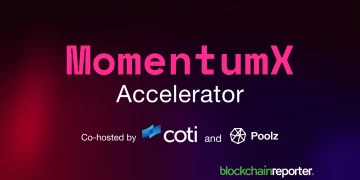The financial landscape is on the brink of a transformative change with the advent of programmable payments powered by Overledger and Quant’s Real Time Tokenisation (RTT) solution. This innovative approach allows organizations to tokenize their deposits, introducing a new level of programmability to money that is set to redefine mainstream banking.
The Need for Change in Traditional Banking
Traditional banking transactions are typically straightforward and involve a variety of complex systems and intermediaries. This not only adds to the costs but also reduces transparency and efficiency. The current system lacks sufficient automation capabilities, which can lead to inefficiencies and increased operational costs.
How Tokenization and Programmability Introduce Efficiency
Quant’s RTT solution leverages Overledger technology to transform the way payments are processed in the banking sector. By tokenizing balances, Quant creates digital currencies that have payment programmability at their core. This means that money can now be programmed to perform specific actions automatically under certain conditions, which is a significant leap from the traditional transaction methods.
Benefits Across the Board
- For Business Leaders: The introduction of tokenization and programmability not only simplifies transactions but also significantly cuts costs by enhancing the efficiencies provided by blockchain technology.
- For Financial Institutions: Programmable payments can drive innovation within financial services. By integrating with open banking APIs, these institutions can offer their clients sophisticated solutions that require minimal effort for integration and execution.
- For Regulatory Bodies: The transparency and traceability of digital currencies ensure that regulatory bodies can better prevent fraud and monitor financial activities more effectively.
Technology Driving Innovation
Quant RTT operates on the foundation of Overledger technology, which allows it to interconnect different blockchain networks. This capability ensures that payments can be seamlessly processed across various platforms without the need for intermediaries, thereby reducing layers of complexity and associated costs.
Smart contracts play a crucial role in this ecosystem. They incorporate pre-defined conditions into the programmable payments, ensuring that actions are triggered automatically without any manual intervention. This not only saves time but also enhances the security and reliability of transactions.
Preparing for the Future
With central bank digital currencies (CBDCs) expected to become more prevalent in the next decade, now is the opportune time for commercial banks to start tokenizing their balances. This proactive approach will prepare the banking sector for a future where payments are not just transactions, but smart, self-executing contracts that optimize financial operations and service delivery.
Quant RTT and its smart payment locks are customizable to meet specific institutional needs, providing a flexible, secure, and innovative financial solution that is ready for the challenges of tomorrow’s banking requirements.
Beyond the Horizon: What Lies Ahead for Programmable Payments
The integration of Quant’s RTT solution in mainstream banking could herald a new era of financial operations where money is not only digital but intelligent. By embracing this technology, the banking sector can look forward to a future where money is more than just a medium of exchange—it is a tool for growth, security, and innovation.























